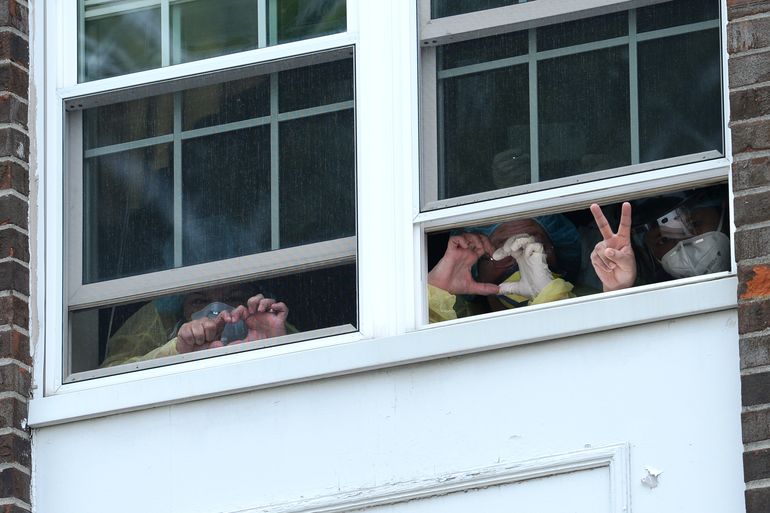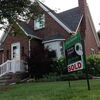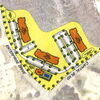Processing Your Payment
Please do not leave this page until complete. This can take a few moments.
-
News
-
Editions
-
- Lists
-
Viewpoints
-
HBJ Events
-
Event Info
- 2024 Economic Outlook Webinar Presented by: NBT Bank
- Best Places to Work in Connecticut 2024
- Top 25 Women In Business Awards 2024
- Connecticut's Family Business Awards 2024
- What's Your Story? A Small Business Giveaway 2024 Presented By: Torrington Savings Bank
- 40 Under Forty Awards 2024
- C-Suite and Lifetime Achievement Awards 2024
- Connecticut's Health Care Heroes Awards 2024
-
-
Business Calendar
-
Custom Content
- News
-
Editions
View Digital Editions
Biweekly Issues
- April 15, 2024
- April 1, 2024
- March 18, 2024
- March 4, 2024
- February 19, 2024
- February 5, 2024
- January 22, 2024
- January 8, 2024
- Dec. 11, 2023
- + More
Special Editions
- Lists
- Viewpoints
-
HBJ Events
Event Info
- View all Events
- 2024 Economic Outlook Webinar Presented by: NBT Bank
- Best Places to Work in Connecticut 2024
- Top 25 Women In Business Awards 2024
- Connecticut's Family Business Awards 2024
- What's Your Story? A Small Business Giveaway 2024 Presented By: Torrington Savings Bank
- 40 Under Forty Awards 2024
- C-Suite and Lifetime Achievement Awards 2024
- Connecticut's Health Care Heroes Awards 2024
Award Honorees
- Business Calendar
- Custom Content
Panel will propose new legislation for nursing homes as COVID-19 cases, deaths in facilities continue to rise
 Photo | CT MIRROR
Workers at Golden Hill Rehab Pavilion in Milford greet lawmakers.
Photo | CT MIRROR
Workers at Golden Hill Rehab Pavilion in Milford greet lawmakers.
With the number of deaths from COVID-19 in Connecticut’s nursing homes surpassing 2,900 this month and the state stepping up mandates for testing, health officials and legislators are forming a panel to consider whether there should be new legal requirements for staffing levels, testing and how equipment is procured and distributed, among other issues.
The state’s nursing homes are some of the hardest hit facilities, with 64% of Connecticut’s coronavirus fatalities occurring there. As of Oct. 20, the most recent data available, 9,109 nursing home residents had been infected. Thousands of staff members also contracted the virus, and more than a dozen have died.
“We were in a crisis, and we still are,” said state Rep. Toni Walker, D-New Haven, a longtime co-chair of legislature’s Appropriations Committee and a co-chairwoman of the new nursing home working group. “Because of that, sometimes things don’t get responded to in the most expeditious way. So we hope this [group] is going to help us to that.”
The panel will examine staffing levels in nursing homes, how facilities are handling infectious disease control, policies around visitation and socialization, how much personal protective equipment the homes have and the rules surrounding its usage, capital improvements at the facilities and testing requirements.
Many of the issues were identified in a sweeping report by Mathematica, an independent firm hired by the state to review the crisis in Connecticut’s nursing homes.
Mathematica found that because many early efforts were focused on coordination and resources for hospitals, the state’s preparedness and response at long-term care facilities was hampered. The firm also concluded that nursing homes did not take prompt and immediate action to limit entry to their buildings, enforce staff screening measures and implement universal mask wearing early on.
Lawmakers have been flooded with calls from constituents who expressed concerns about the virus spreading in nursing homes and quality of care their loved ones have received.
“A lot of them felt that they were abandoned and that their loved ones were abandoned,” Walker said. “We have to reassure them that we haven’t abandoned them, and we need to come up with better protocols on how we work during the pandemic.”
Deidre Gifford, the state’s acting public health commissioner, will co-chair the nursing home panel. Legislators from the Human Services, Public Health, Appropriations, Aging and Labor committees – who are expected to eventually weigh legislation on these issues – will participate, along with industry officials, nursing home workers, union representatives, the long-term care ombudswoman and families with loved ones in nursing homes.
Coronavirus cases in the state’s nursing homes surged last winter and spring. The rate of new cases slowed during the summer, after facilities began testing all staff and residents on a regular basis.
But infections in nursing homes are on the rise again as Connecticut’s overall case count keeps increasing. As of Tuesday, the state’s positivity rate reached 4.1%, the highest one-day number since early June.
The Department of Public Health is again requiring all long-term care facilities to test staff members on a weekly basis. The state mandated the weekly testing of employees in June but relaxed that policy weeks later to match federal guidelines. Over the summer, facilities that had no new COVID-19 cases for 14 days could stop testing. This fall, the state changed the policy again to require staff testing at least once a month and recently mandated that nursing homes in “hot spots” – areas with a high rate of new cases – test staff weekly. That mandate is now extended to all facilities.
Nursing homes recently began to allow indoor visitations for the first time in months, though there is no state policy requiring visitors to be tested. Some facilities in regions with high community spread have instituted their own policies for visitor testing.
Matthew Barrett, president and CEO of the Connecticut Association of Health Care Facilities, said he is supportive of the new nursing home panel and has been invited to participate.
“To begin working on these issues that are multi-dimensional and have a lot of moving parts in advance of the legislative session, I think, is wise,” he said.
The nursing home panel will meet weekly and come up with recommendations for legislation by early January.

2022 Giving Guide
This special edition informs and connects businesses with nonprofit organizations that are aligned with what they care about. Each nonprofit profile provides a crisp snapshot of the organization’s mission, goals, area of service, giving and volunteer opportunities and board leadership.
Learn more
Subscribe
Hartford Business Journal provides the top coverage of news, trends, data, politics and personalities of the area’s business community. Get the news and information you need from the award-winning writers at HBJ. Don’t miss out - subscribe today.
Subscribe
2024 Book of Lists
Delivering Vital Marketplace Content and Context to Senior Decision Makers Throughout Greater Hartford and the State ... All Year Long!
Read Here-
2022 Giving Guide
This special edition informs and connects businesses with nonprofit organizations that are aligned with what they care about. Each nonprofit profile provides a crisp snapshot of the organization’s mission, goals, area of service, giving and volunteer opportunities and board leadership.
-
Subscribe
Hartford Business Journal provides the top coverage of news, trends, data, politics and personalities of the area’s business community. Get the news and information you need from the award-winning writers at HBJ. Don’t miss out - subscribe today.
-
2024 Book of Lists
Delivering Vital Marketplace Content and Context to Senior Decision Makers Throughout Greater Hartford and the State ... All Year Long!
ABOUT
ADVERTISE
NEW ENGLAND BUSINESS MEDIA SITES
No articles left
Get access now
In order to use this feature, we need some information from you. You can also login or register for a free account.
By clicking submit you are agreeing to our cookie usage and Privacy Policy
Already have an account? Login
Already have an account? Login
Want to create an account? Register
Get access now
In order to use this feature, we need some information from you. You can also login or register for a free account.
By clicking submit you are agreeing to our cookie usage and Privacy Policy
Already have an account? Login
Already have an account? Login
Want to create an account? Register






0 Comments